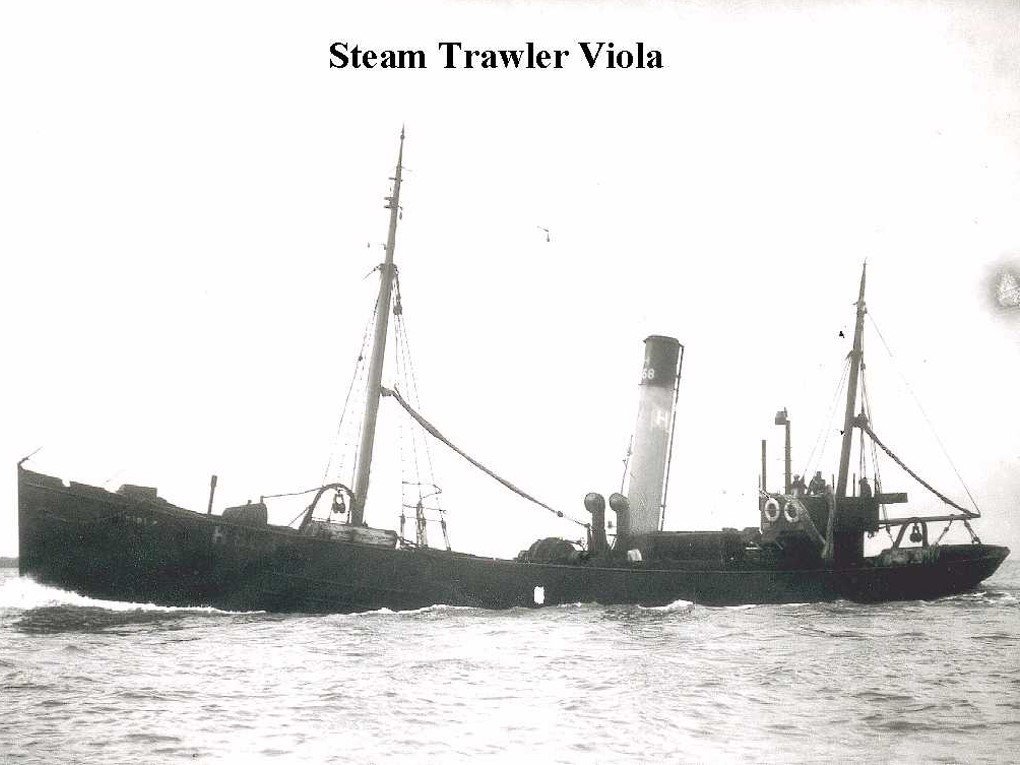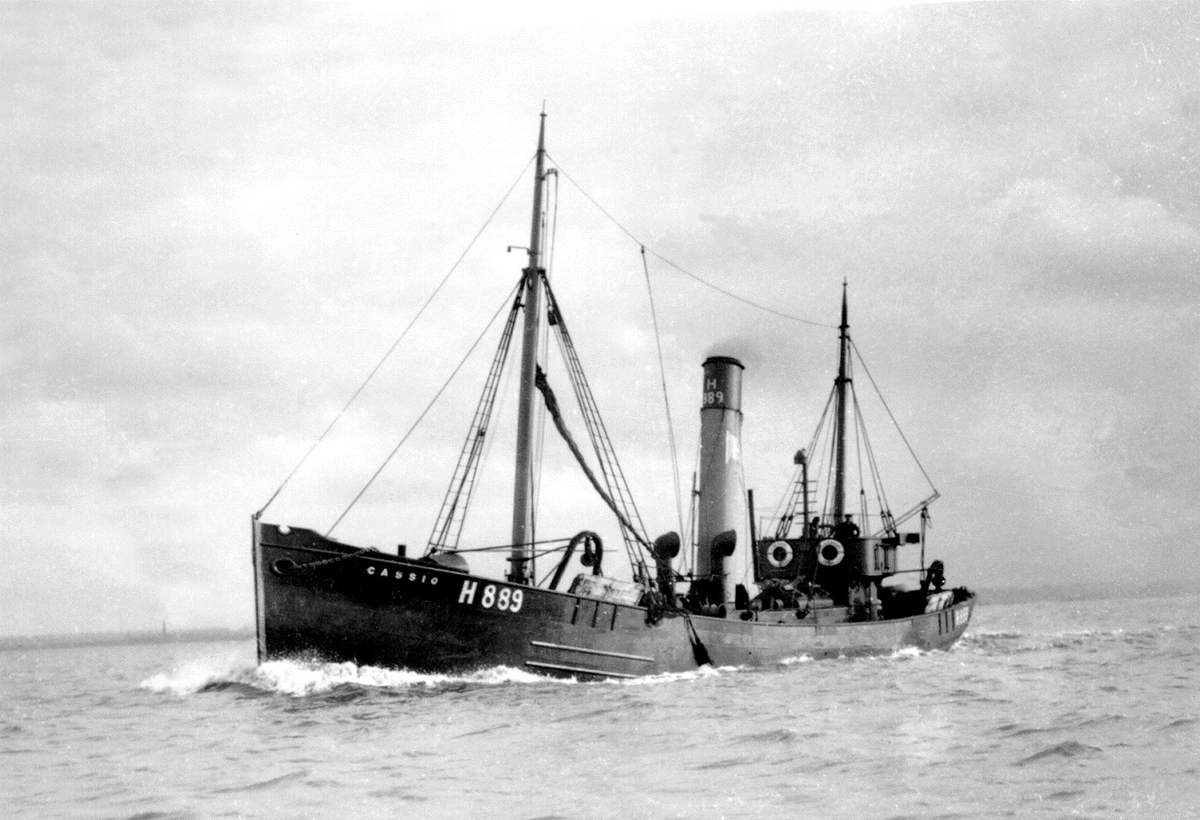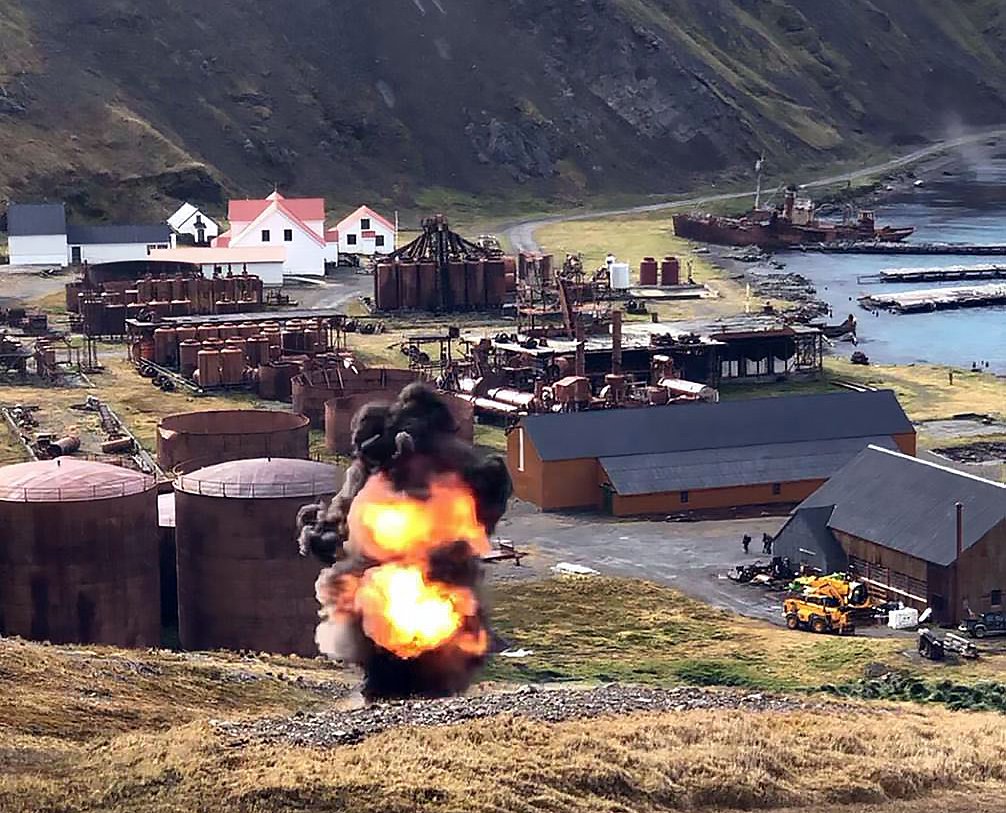The 23rd of April is one of the few dates in the calendar I happen to notice. Nothing to do with Turkish dragon-pokers, of course - it& #39;s (traditionally) the day of Shakespeare& #39;s birth and death.
Nobody follows this account for its literary merits though, so let& #39;s meet Viola.
Nobody follows this account for its literary merits though, so let& #39;s meet Viola.
Fishermen are a notoriously superstitious bunch, so quite why the Hellyer Steam Fishing Company decided to name a trawler after a character that starts the play shipwrecked on a foreign shore is a mystery.
Suffice to say Viola ended up extremely on brand.
Suffice to say Viola ended up extremely on brand.
These boats were worked hard - often out for 300 days in the year, they didn& #39;t even return to port to land their catches - instead transferring them at sea to faster packet steamers.
Hellyer had quite the Shakespearean theme going on - this trawler is Cassio.
Hellyer had quite the Shakespearean theme going on - this trawler is Cassio.
Viola& #39;s "home" port, insomuch as it ever returned there was Hull. Built in 1906, it was a contemporary of the Gamecock Fleet that the Russian navy misidentified as [checks notes] Japanese torpedo boats.
A mere 20,000 miles away from Japan.
A mere 20,000 miles away from Japan.
In 1914 Viola, like so many similar trawlers, was requisitioned for the war effort. Kept safely away from any Russian warships that happened to be lurking, this painting by Larry Malkin shows Viola& #39;s role in the sinking of UB 115.
http://www.artistlarrymalkin.com/ ">https://www.artistlarrymalkin.com/">...
http://www.artistlarrymalkin.com/ ">https://www.artistlarrymalkin.com/">...
After the war& #39;s end, Viola was purchased by a Norwegian whaling firm. Amongst other changes the bridge was moved forward.
I& #39;m assuming they also removed the 12-pound gun, unless someone had read Moby Dick and started to get paranoid about the whales& #39; capacity for revenge...
I& #39;m assuming they also removed the 12-pound gun, unless someone had read Moby Dick and started to get paranoid about the whales& #39; capacity for revenge...
First renamed Kapduen, and then Dias by an Argentinian firm, Viola eventually found its way to South Georgia as a dedicated seal hunter. It also supported scientific expeditions, presumably the sort of scientific expeditions that ask "how much stuff can we kill?"
The answer, disappointingly, turned out to be "quite a lot".
So efficient were the fleets, in fact, that they were rapidly running out of whales. The South Georgian industry collapsed, and Viola met the same fate as its namesake.
So efficient were the fleets, in fact, that they were rapidly running out of whales. The South Georgian industry collapsed, and Viola met the same fate as its namesake.
Viola was nothing if not a survivor, however. Having shrugged off the German u-boats and the decline of the great herring shoals, the South Georgian winters were no problem.
It even shrugged off the visit of some uninvited South American tourists, whose litter is still being disposed of today (timely image via @NavyLookout)
As a unique survivor of both Hull& #39;s fishing industry and the First World War, there& #39;s now a campaign to bring Viola back home. As part of this the ship& #39;s bell has been returned to its rightful place.
http://www.violatrawler.net/ ">https://www.violatrawler.net/">...
http://www.violatrawler.net/ ">https://www.violatrawler.net/">...

 Read on Twitter
Read on Twitter


![Viola& #39;s "home" port, insomuch as it ever returned there was Hull. Built in 1906, it was a contemporary of the Gamecock Fleet that the Russian navy misidentified as [checks notes] Japanese torpedo boats. A mere 20,000 miles away from Japan. Viola& #39;s "home" port, insomuch as it ever returned there was Hull. Built in 1906, it was a contemporary of the Gamecock Fleet that the Russian navy misidentified as [checks notes] Japanese torpedo boats. A mere 20,000 miles away from Japan.](https://pbs.twimg.com/media/EzpwGrFXMAITL5g.png)










